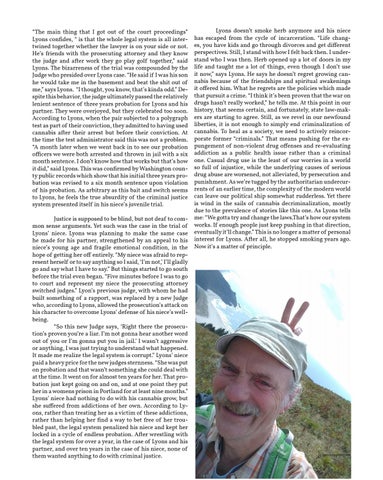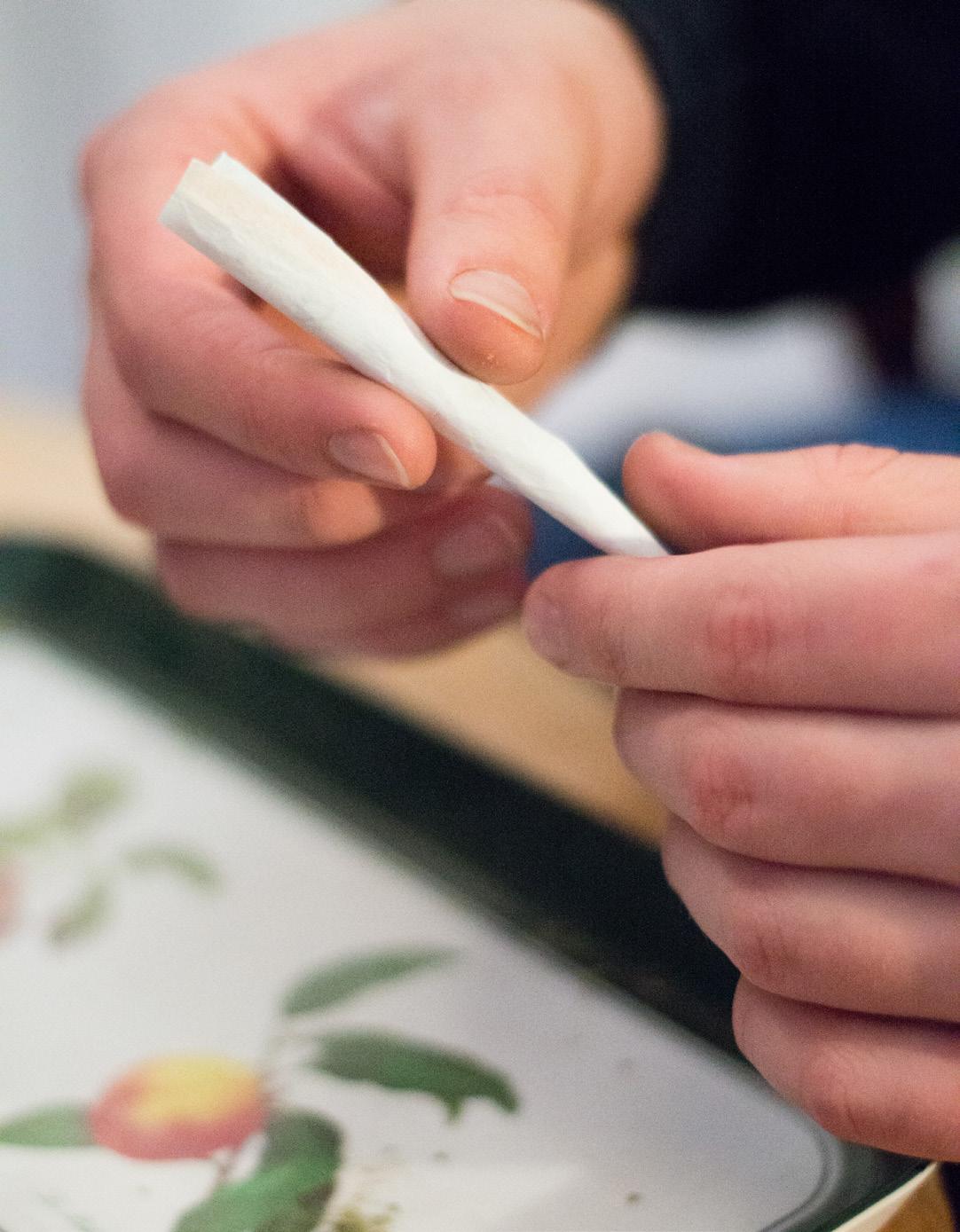“The main thing that I got out of the court proceedings” Lyons confides, “ is that the whole legal system is all intertwined together whether the lawyer is on your side or not. He’s friends with the prosecuting attorney and they know the judge and after work they go play golf together,” said Lyons. The bizarreness of the trial was compounded by the Judge who presided over Lyons case. “He said if I was his son he would take me in the basement and beat the shit out of me,” says Lyons. “I thought, you know, that’s kinda odd.” Despite this behavior, the judge ultimately passed the relatively lenient sentence of three years probation for Lyons and his partner. They were overjoyed, but they celebrated too soon. According to Lyons, when the pair subjected to a polygraph test as part of their conviction, they admitted to having used cannabis after their arrest but before their conviction. At the time the test administrator said this was not a problem. “A month later when we went back in to see our probation officers we were both arrested and thrown in jail with a six month sentence. I don’t know how that works but that’s how it did,” said Lyons. This was confirmed by Washington county public records which show that his initial three years probation was revised to a six month sentence upon violation of his probation. As arbitrary as this bait and switch seems to Lyons, he feels the true absurdity of the criminal justice system presented itself in his niece’s juvenile trial. Justice is supposed to be blind, but not deaf to common sense arguments. Yet such was the case in the trial of Lyons’ niece. Lyons was planning to make the same case he made for his partner, strengthened by an appeal to his niece’s young age and fragile emotional condition, in the hope of getting her off entirely. “My niece was afraid to represent herself or to say anything so I said, ‘I’m not,’ I’ll gladly go and say what I have to say.” But things started to go south before the trial even began. “Five minutes before I was to go to court and represent my niece the prosecuting attorney switched judges.” Lyon’s previous judge, with whom he had built something of a rapport, was replaced by a new Judge who, according to Lyons, allowed the prosecution’s attack on his character to overcome Lyons’ defense of his niece’s wellbeing. “So this new Judge says, ‘Right there the prosecution’s proven you’re a liar. I’m not gonna hear another word out of you or I’m gonna put you in jail.’ I wasn’t aggressive or anything, I was just trying to understand what happened. It made me realize the legal system is corrupt.” Lyons’ niece paid a heavy price for the new judges sternness. “She was put on probation and that wasn’t something she could deal with at the time. It went on for almost ten years for her. That probation just kept going on and on, and at one point they put her in a womens prison in Portland for at least nine months.” Lyons’ niece had nothing to do with his cannabis grow, but she suffered from addictions of her own. According to Lyons, rather than treating her as a victim of these addictions, rather than helping her find a way to bet free of her troubled past, the legal system penalized his niece and kept her locked in a cycle of endless probation. After wrestling with the legal system for over a year, in the case of Lyons and his partner, and over ten years in the case of his niece, none of them wanted anything to do with criminal justice.
Lyons doesn’t smoke herb anymore and his niece has escaped from the cycle of incarceration. “Life changes, you have kids and go through divorces and get different perspectives. Still, I stand with how I felt back then. I understand who I was then. Herb opened up a lot of doors in my life and taught me a lot of things, even though I don’t use it now,” says Lyons. He says he doesn’t regret growing cannabis because of the friendships and spiritual awakenings it offered him. What he regrets are the policies which made that pursuit a crime. “I think it’s been proven that the war on drugs hasn’t really worked,” he tells me. At this point in our history, that seems certain, and fortunately, state law-makers are starting to agree. Still, as we revel in our newfound liberties, it is not enough to simply end criminalization of cannabis. To heal as a society, we need to actively reincorporate former “criminals.” That means pushing for the expungement of non-violent drug offenses and re-evaluating addiction as a public health issue rather than a criminal one. Casual drug use is the least of our worries in a world so full of injustice, while the underlying causes of serious drug abuse are worsened, not alleviated, by persecution and punishment. As we’re tugged by the authoritarian undercurrents of an earlier time, the complexity of the modern world can leave our political ship somewhat rudderless. Yet there is wind in the sails of cannabis decriminalization, mostly due to the prevalence of stories like this one. As Lyons tells me: “We gotta try and change the laws.That’s how our system works. If enough people just keep pushing in that direction, eventually it’ll change.” This is no longer a matter of personal interest for Lyons. After all, he stopped smoking years ago. Now it’s a matter of principle.
31 | greeneugene.com








